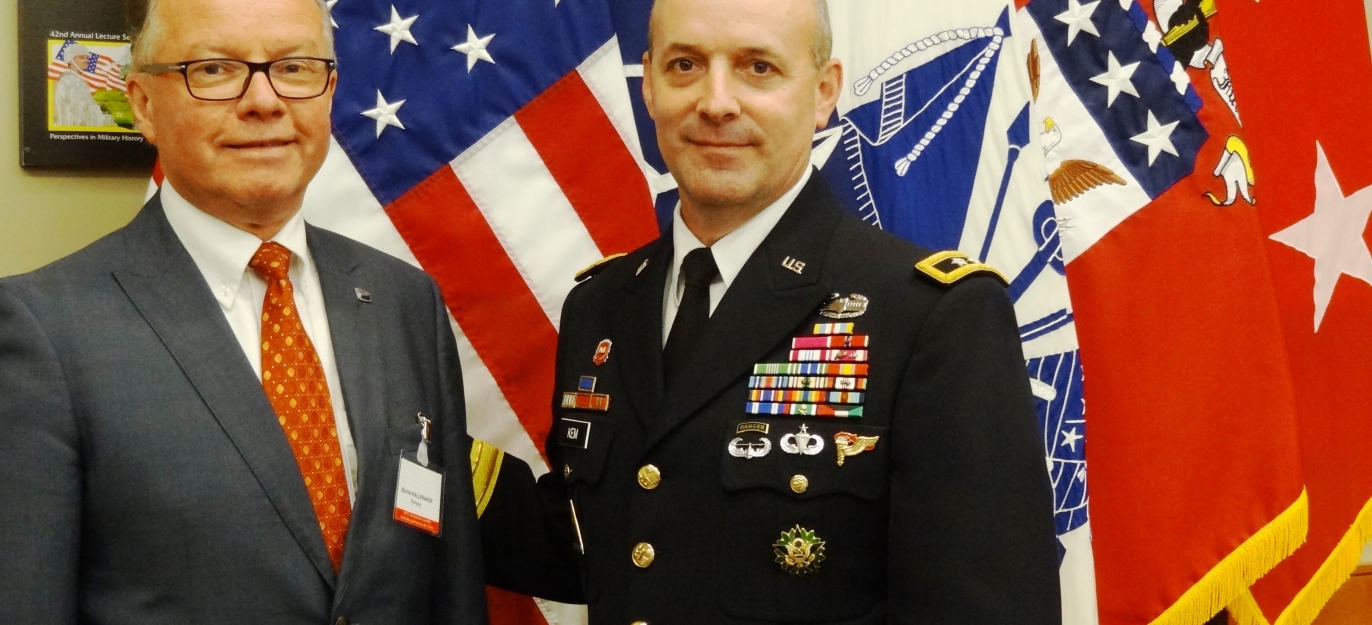Brussels, 29 September 2017 - The approach of the new US administration towards a number of international hotspots is still developing and the United States remains firmly committed to the Alliance, a delegation of lawmakers from the NATO Parliamentary Assembly heard from experts during a 18-21 September visit to Philadelphia and Carlisle, Pennsylvania.
Briefings primarily focused on Russia, the conflict in Syria, and the situation in the Gulf, as well as the North Korean crisis. While the independent experts who briefed the delegation held different, and sometimes conflicting views, especially regarding the Syrian crisis, they generally felt that U.S. policy towards these regions has yet to be clearly defined. However, while the rhetoric of President Donald Trump differs notably from that of his predecessors, there is also considerable continuity in many areas of U.S. foreign and security policy, the delegation heard.
On Russia, US experts noted that it was “too big to ignore”. The Euro-Atlantic community needs to have some working relations with it, even though earlier attempts to engage with Russia had not worked because of the entrenched imperatives that drive Russian politics. As this is unlikely to change in the near future, NATO member countries need to remain united and firm against any Russian attempts to undermine NATO. Moreover, while Allied defence budgets grow, the Alliance needs to focus on improving force readiness which can be achieved, for example, through joint training. This will not only demonstrate NATO’s ability to protect Allies but will also send a strong signal to Russia, as well as to NATO partners.
In the Middle East, the new US leadership seems to prioritise re-forging ties with its traditional allies in the region and taking a harder stance on Iran, the delegation heard. Experts warned that the imminent military defeat of Daesh in Syria and Iraq will not bring stability to the region. While NATO Allies are still struggling to find common ground on Syria, Russia and Iran have strengthened the Assad regime. One briefer suggested that the Assad regime is willing to use the most brutal strategy to defeat its enemies to deter any future challenge to the regime. Additional complicating factors on the ground are the question of the Kurds in Iraq and Syria as well as the relations between Iran and the Arab Gulf states which are fraught with conflict.
The challenge posed by the Democratic People’s Republic of Korea (DPRK – North Korea), described as the “Cold War fossil” by one speaker, was another focus of the briefings. Experts suggested that the North Korean regime wants to perpetuate its control over the country and considers nuclear weapons as the regime’s survival strategy. The most feasible approach at this stage, it was argued, is to seek an arrangement where North Korea agreed to some limitations and international inspections of its nuclear programme in exchange for some conditional assurances not to use force against the regime. The People’s Republic of China has probably most leverage over North Korea, and its support for the DPRK has weakened significantly. However, chances that China will help solving the North Korean issue are limited, namely “because China and the U.S. have very different bad case scenarios”, as one expert suggested. Other speakers maintained that the current U.S. administration lacks a clear Asia-Pacific strategy, while China itself has been vigorously pursuing its “Belt and Road” initiative. China’s rise is triggering a power transition vis-à-vis the United States, and this change will affect the entire international system, the delegates were told during the visit.
The delegation of two Assembly Sub-Committee’s – the Sub-Committee on Democratic Governance (CDSDG) and the Sub-Committee on Transatlantic Relations (PCTR) – met with independent experts in Philadelphia and visited the Strategic Studies Institute of the US Army War College in Carlisle. The visit complemented the array of briefings that NATO PA delegations obtain during the visits to Washington, D.C. NATO Parliamentarians also visited the Delaware Valley Intelligence Center of the Philadelphia Police Department. The delegation consisted of 26 legislators from 10 NATO Allies and 2 NATO partners, and was led by CDSDG Chairman Lord Jopling (UK) and PCTR Chairman Øyvind Halleraker (Norway).
A detailed report of this visit will be published on the Committee on the Civil Dimension of Security and the Political Committee pages of the NATO Parliamentary Assembly’s website.















